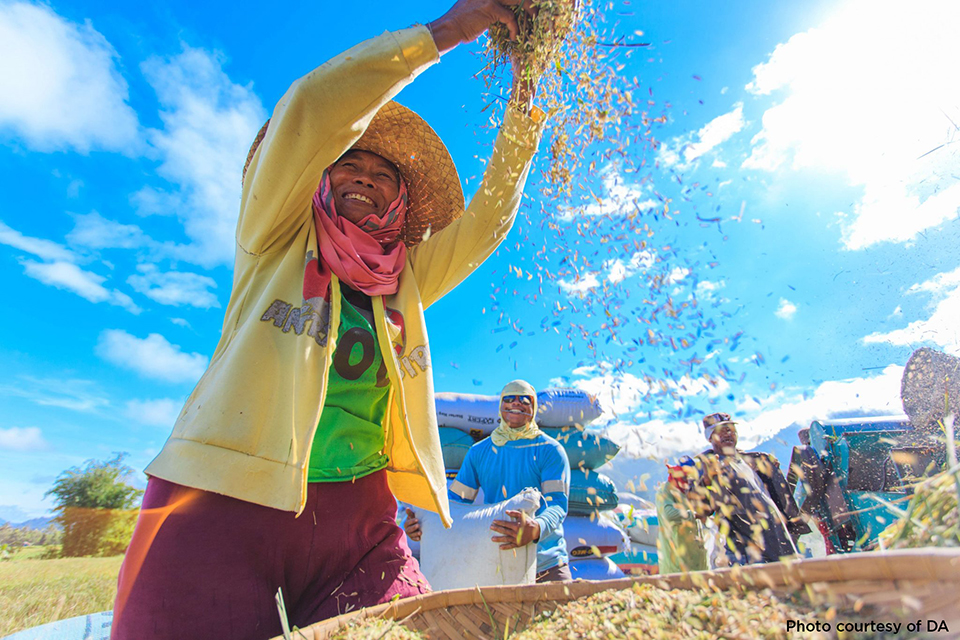
The Department of Agriculture (DA) proposes several sets of interventions to revive and reboot the country’s agriculture and fishery sector after the COVID-19 pandemic.
“We believe the initiatives will help reinvigorate the Philippine countryside after surmounting the COVID-19 pandemic, by increasing food production and establishment of postharvest, storage and logistics systems,” said Agriculture Secretary William Dar.
“Our proposed interventions are under our new banner program, called ‘Plant, Plant, Plant Program,’ totalling P66 billion. It forms part of the bigger economic stimulus package that the House of Representative (HOR) and the Senate are deliberating upon to revive the country’s economy,” added Secretary Dar.
He made the proposal during a virtual briefing with the Committee on Agriculture and Food (CAF) of the HOR, chaired by Quezon Representative Wilfrido Mark Enverga on May 13, 2020.
More than half of the 76-member CAF at the HOR joined the first briefing of the commitee via teleconferencing.
The proposed interventions are:
- ALPAS Kontra sa COVID-19 – P31 billion (B);
- Food logistics/food markets and other interventions – P20B; and
- Cash for Work (C4W) program- P15B.
The Plant, Plant, Plant Program or Agri 4Ps is the DA’s centerpiece program crafted and implemented during the COVID-19 crisis with 14 components aimed at attaining a higher level of national food sufficiency.
President Duterte earlier approved the Rice Resiliency Project (RRP), worth P8.5B that starts this main planting season, aimed at further increasing national rice production.
The RRP augments the P10-B Rice Competitiveness Enhancement Fund (RCEF) and the P7-B regular DA inbred and hybrid rice program.
All told, the three rice initiatives aim to produce a total of 20.7 million metric tons of palay for 2020.
Among the interventions under the Agri 4Ps include:
- Rice buffer stocking by the National Food Authority, worth P8B; and
- Rice Resiliency Program for the 2020-2021 dry season, worth P8.24B.
“We plan to augment the current P7-B palay procurement budget of the NFA so that it could buy more palay and increase its buffer stock from the current 15 days to 30 days,” said Secretary Dar.
“Further, we want to follow up the RRP for this main season with a similar RRP for the 2020-2021 dry season,” he added.
“Another intervention is on food logistics/food markets, which is an essential aspect for our supply chain management to grow and expand. While we have the metro markets and the bagsakan areas, these are not enough given the population that we have. We need to have an effective distribution system so that farmers can bring in their produce and harvests from the trading posts in the provinces and link them to big food markets nationwide,” Secretary Dar said.
He added that the ‘best practices’ of other countries will benefit Filipino farmers from the said kind of engagement. “It can be a win-win situation both for producers and consuming public,” he said.
The interventions on food logistics/food markets feature six components:
- Food logistics/food markets project;
- Strengthening of price monitoring and enforcement system;
- Communications support to Agri’s 4Ps;
- Expanding extension support to the provincial local government units;
- Agricultural and fisheries commodity exchange system; and
- Digital agriculture.
“The third package is the Cash for Work (C4W) program in agriculture, a livelihood recovery support that aims to mitigate the impact of COVID-19 by ensuring basic food requirements of poor families,” said Secretary Dar.
“Through the C4W program, we hope to provide jobs to one million agri-fishery workers and meet the deliverables of DA-refocused projects and activities. Specifically, we want that each beneficiary will be able to earn up to P15,000; and sustain food production through these DA projects and activities,” he added. ### (Rita dela Cruz, DA StratComms)











